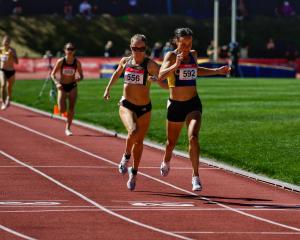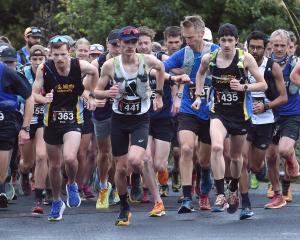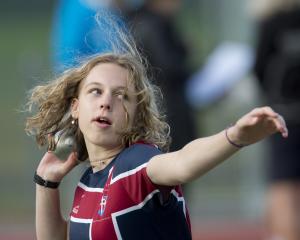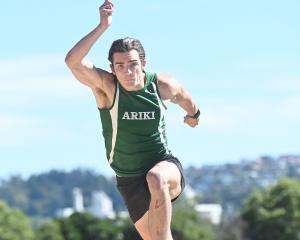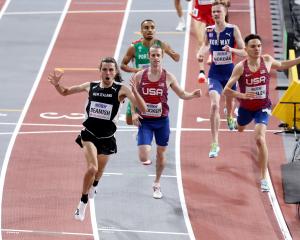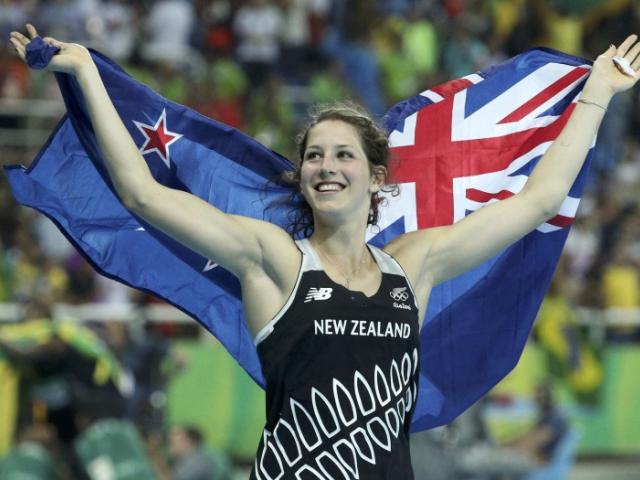
The 19-year-old from North Harbour equalled her personal best 4.80m to nail the third place on a countback from Australian Alana Boyd and nothing could shake the excitement from her.
"My cheeks are so sore and my eyes are red from crying. I'm so happy," she laughed.
McCartney has won New Zealand's 16th medal of the Rio Games and while she was ranked eighth going into the event, it was still a tall order for a jumper who only joined the senior ranks at the world indoor championships in Portland, Oregon in March.
It was the biggest day of McCartney's rapidly burgeoning career and she was determined to enjoy it. At one point she clapped at a medal ceremony; she congratulated another vaulter for clearing a key jump with a quiet word, her routine and rhythm was bang on and she made the most of it.
"In Portland, I got quite caught up in the hype, but also my nerves. I learnt a bit about that. It was the first time I'd been competing against senior girls. Now I feel I know them so that's fine."
The important point for McCartney was she started with a rush.
She cleared 4.50m, 4.60m, 4.70m and 4.80m with her first attempt each time. That had her in first place for a time and those successes were a big part of her ultimate success. The fewer jumps taken is a decider if two vaulters are level on marks.
McCartney could not quite clear 4.85m, which would have been a national record and PB mark. Her second attempt at that height was her poorest jump, after having to rush it with the clock on her.
When she bowed out, McCartney left three jumpers. It was a tough watch, then Boyd also failed at 4.80m and McCartney clutched her hands to her face in stunned disbelief.
Once Ekaterini Stefanidi had nabbed gold ahead of American Sandi Morris - both clearing 4.85m - on a countback it was time to grab a New Zealand flag and join the other two medallists in saluting the crowd.
McCartney paid tribute to the work of her coach Jeremy McColl - the only coach she's ever had and the man to whom she went, with a friend, when at 14 she first fancied trying out this unusual lark of propelling yourself into the air.
"I have to give all credit to my coach. He knows pole vault inside out and he's the reason I'm here."
Her family were also in the stadium - "you could hear them. It's the most incredible thing, so, so special."
The Tokyo Games in 2020 were always McCartney's goal, but the speed of her progress in the last year forced a re-evaluation of what might be possible.
"Can't wait," she said of that event.
McColl never doubted McCartney had the talent. It was a case of harnessing it.
"She was pretty much a natural from the start," McColl said.
And he's confirmed the bubbly nature is just her.
"It's just the way she is. She's still Eliza. She hasn't changed."
And no, she doubted she'd get any sleep tonight either.
Eliza McCartney: New Zealand's new star
- McCartney first turned to pole vaulting at 14 while at Takapuna Grammar because "it looked like fun".
- A bout of glandular fever laid her low a couple of years ago but she bounced back to become world junior recordholder.
- McCartney posted her personal best, 4.80m at the national champs in Dunedin this year. That was the mark she reached yesterday in Rio.
- She had initially planned to push for the Tokyo 2020 Olympics, but her progress was so rapid over the last few months it brought Rio into the calculations.
- The 19-year-old is the fourth New Zealand field athlete to win an Olympic medal, after Yvette Williams (long jump, 1952), Val Adams (shot put, 2008, 2012, 2016) and Tom Walsh (shot put, 2016).
- She is New Zealand's youngest female Olympic medallist, going under swimmer Jean Stewart who was 21 in Helsinki in 1952.





